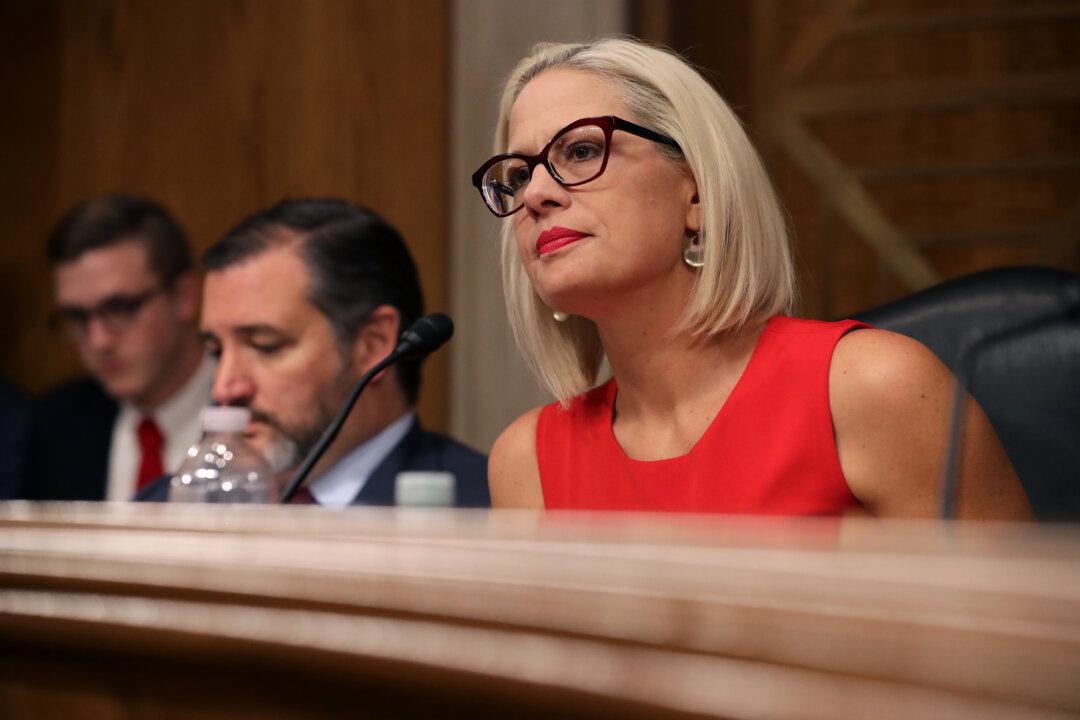Sen. Kyrsten Sinema (D-Ariz.) said on Thursday that she will not help her party to weaken or abolish the filibuster, all but ending President Joe Biden’s aspiration to pass comprehensive voting legislation that would increase the federal government’s power over elections.
This announcement comes as little surprise to observers of the Arizona maverick who, like former Sen. John McCain, has long been willing to break with her party on various issues. On the filibuster especially, Sinema opposes efforts by her party to change the peculiar Senate rule.





